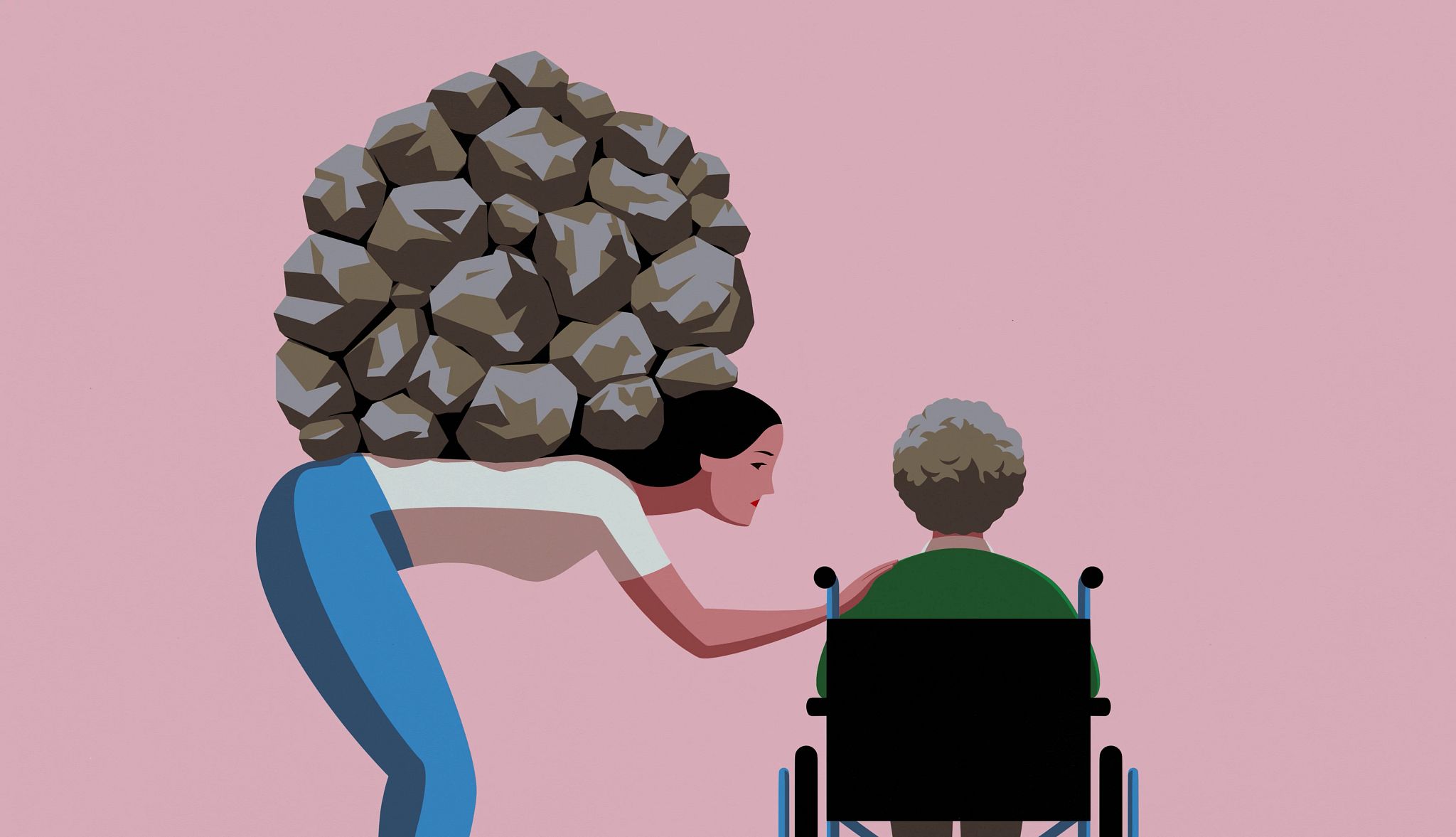
12 Ways for Family Caregivers to Deal with Their Toughest Days
- Select a language for the TTS:
- UK English Female
- UK English Male
- US English Female
- US English Male
- Australian Female
- Australian Male
- Language selected: (auto detect) - EN
Play all audios:
Jon Krause Facebook Twitter LinkedIn
Some days, it can feel like every day is the toughest day for family caregivers. That’s because what can go wrong often does go wrong. Additionally, every family caregiver is, first and
foremost, human.
Then — wham! — along comes a doozy of a day, and you’re certain that this one is your worst day as a caregiver. It’s a day when your caregiving duties challenge you emotionally, physically,
financially — or all three simultaneously. How can a loving family caregiver specifically respond to such an impossible situation?
AARP reached out to a handful of experts — two academics and two who have written books about family caregiving — for advice on the things that family caregivers can do to deal with the
physical and emotional stress of their roughest days as caregivers.
Here are their top tips:
1. Control your anger when your loved one messes upWhat caregiver hasn’t experienced this challenge a million times: their loved one accidentally makes a big mess — perhaps without even leaving their bed. Or the person they care for
accidentally falls and hurts themselves. Or their loved one momentarily gets lost — perhaps in a big department store — during an outing.
The natural reaction for any caregiver would be to get angry. That’s okay, but only if you hold off and get angry in private and not in front of your loved one, says Dolores
Gallagher-Thompson, active professor emerita in the Department of Psychiatry at Stanford University and author of Family Caregiver Distress.
“If you approach something with a negative attitude, you’ll only foster more negativity, and you’ll feel guilty later,” she says.
For example, when your “lost” loved one in the department store is finally found, hug them with joy instead of yelling at them and tell them how happy you are that you found them. “If you
focus on that, you can take joy in being together again,” she says.
2. Allow bureaucratic stress to roll off your backSometimes, your toughest days will have nothing to do with your loved one’s behavior or condition and everything to do with the massive bureaucracy that almost every caregiver is forced to
deal with, says Gallagher-Thompson.
She says that bureaucratic stress can be the worst kind of stress because it can feel so out of your control. For example, when you’re on the phone for an hour waiting for someone to pick up
at the other end, or when the pharmacy messes up on a prescription and can’t quickly fix it.
Join Our Fight for CaregiversSign up to become part of AARP's online advocacy network and help family caregivers get the support they need.
“Take deep breaths,” she advises. “If you don’t do that, you won’t be able to think clearly.” Practicing yoga or meditation can help you avoid a feeling of helplessness,
Gallagher-Thompson says this is also where a support network can be invaluable. “You may have a friend, relative, or acquaintance who has previously had success with this problem.”
3.Remind yourself why you’re a caregiver
On the most challenging days, it can be easy to forget why you chose to become a caregiver in the first place. That’s when it’s most important to stop and remind yourself that you’re there
because you care, says Connie Baher, author of Family Caregivers: An Emotional Survival Guide.
“When the daily grind has ground you down, you have to find a way of grounding yourself,” she says.
She suggests on those difficult days, every caregiver should take a moment to spell out the word C-A-R-E and think about what each of the four letters stands for. “C,” she says, stands for
your compassion for your loved one. “A” is for the admiration you also feel for them. “R” is for the lack of recognition that your loved one often feels. And “E,” she says, is a reminder to
embrace the caregiver experience. “You are there to embrace and lean in.”
4. Rediscover past passionsSometimes, says Baher, long-haul caregivers, in particular, experience such difficult days that they feel as if they have nothing left inside to give.
“They are numb,” he says. “They have no time to go to the spa or have lunch with a friend.”